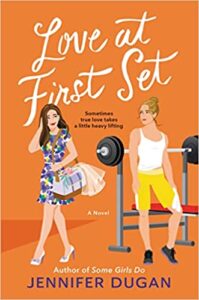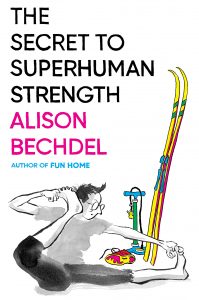“Queer chaos trumps moral fortitude, especially when making out is involved.”
For Lizzie, working at a gym isn’t just a job; it’s her home. For now, she’s only the check-in girl (and occasionally, the owner’s punching bag), but one day, she could manage her own. When her bestie (and emotional support himbo) and boss’s son James asks her to play plus-one at his sister’s wedding, she agrees, hoping to find a chance to talk to his parents about a promotion. One drunken pep-talk later and the bride-to-be, Cara, realizes she doesn’t want to get married after all. It doesn’t help that Lizzie is crushing on her hard—or that Cara decides to stay with her brother while getting her derailed life back together. Afraid his sister plans to set him up on a blind date, James urges Lizzie to keep her distracted. Can Lizzie girl the hell up and keep her crush under wraps?
Lizzie is a beautifully realistic mess and knows it. Growing up with an unreliable, emotionally-abusive mother taught Lizzie she could only rely on herself, while her economic status triggered some serious self-esteem issues. Though her self-reliance and independence are strengths, her unwillingness to trust others also becomes a weakness.
Jennifer Dugan heard the phrase “queer pining” and understood the assignment. Lizzie’s insta-crush on Cara spurs some hilarious self-talk that puts the “com” in this queer rom-com. The constant, silent, somewhat reluctant pining is intense, raw, and real, but her sass and sarcasm never let it get overly sappy. Though Lizzie can’t see it, Cara’s obvious crushing is equally intense, making these two lovesick, bisexual messes the perfect match.
Unfortunately, everything I loved in the first half of the book becomes exhausting by the second half. Lizzie allows both James and Cara to manipulate her into favors that benefit them too often. Her self-proclaimed cowardice spurs the story’s internal conflict a little too much. The self-deprecation that was once funny became painful enough to become cringy, too.
While I love a slow burn, Lizzie and Cara’s relationship is too focused on showing physical development, but not the emotional development. We don’t see the pillow talk or hidden moments between them that lead to them falling in love with one another. The external conflict—Cara’s mother—is written as a two-dimensional antagonist. Her motivation for keeping the women apart is status, but why? (Did she grow up in poverty, or feel shamed by a group with higher social status at one point in her life?)
Vague spoilers below.
My biggest pet peeve is a plot powered by miscommunication (in this case, a complete failure at communicating from the start), and this story relies on it all too much to reach an unsatisfying happy ending that’s tied up in a literal bow. The writing was so strong and held so much promise in the beginning, but I’m afraid the third-act break-up, blow-up dinner scene, ultimatum, and ending didn’t do it for me.
End of spoilers.
Recommended for anyone who loves pining and scheming of Shakespearean proportions. This sapphic rom-com will be a sweet if chaotic addition to your TBR.
✨ The Vibes ✨
👟 Sapphic Rom-Com
👟 Bi Visibility
👟 Gay Best Friend
👟 Economic Classes
👟 Shakespearean Miscommunication, Pining, and Scheming
👟 Self-Esteem Issues
“Don’t sit behind the gym counter of your life when you’re meant to be in front of it. “


